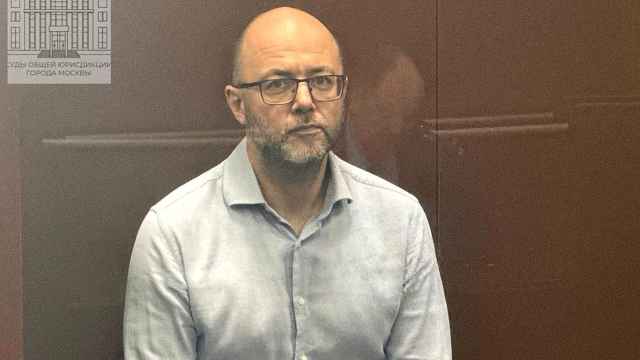Money-laundering involving illegal profits from state contracts has doubled during the past year, ahead of an expected tightening of controls over government procurement, a survey conducted among Russian bankers and released Monday showed.
In general, launderers of all stripes appear in 2013 to be operating as normal — 65 percent of bankers questioned said the volume of money laundering in the country had remained unchanged, while 67 percent said the associated risks had not increased, the survey of 100 Russian banks by the National Payment Council showed, Vedomosti reported.
But the number of bankers reporting laundering schemes linked to government procurement orders doubled to 69 percent this year, compared to 36 percent in 2012.
The trend may reflect a rush by corrupt officials to collect and launder their bribes before the government introduces stricter controls over state orders next year, said head of the Higher School of Economics' Enterprise and Markets Analysis Institute, Andrei Yakovlev.
Economists at the school estimate that the new measure, designed to follow state orders through from their placement to delivery, may save the government more than 1 trillion rubles ($30.5 billion) — or about 20 percent of the total volume of state orders, which reached 5.3 trillion rubles in January through November.
Money-laundering linked to cash withdrawals still topped the list of schemes reported by the bankers surveyed, with 74 percent reporting contact with such methods this year, compared to 79 percent in 2012. The second most-common type of ploy involved international transfers of money, with 69 percent of bankers saying they had come across such scams this year, compared to 72 percent in 2012.
The laundering of illegal profits from government orders advanced to third place, followed by securities fraud, which has also risen sharply to 59 percent this year, compared to 23 percent in 2012.
A Message from The Moscow Times:
Dear readers,
We are facing unprecedented challenges. Russia's Prosecutor General's Office has designated The Moscow Times as an "undesirable" organization, criminalizing our work and putting our staff at risk of prosecution. This follows our earlier unjust labeling as a "foreign agent."
These actions are direct attempts to silence independent journalism in Russia. The authorities claim our work "discredits the decisions of the Russian leadership." We see things differently: we strive to provide accurate, unbiased reporting on Russia.
We, the journalists of The Moscow Times, refuse to be silenced. But to continue our work, we need your help.
Your support, no matter how small, makes a world of difference. If you can, please support us monthly starting from just $2. It's quick to set up, and every contribution makes a significant impact.
By supporting The Moscow Times, you're defending open, independent journalism in the face of repression. Thank you for standing with us.
Remind me later.





